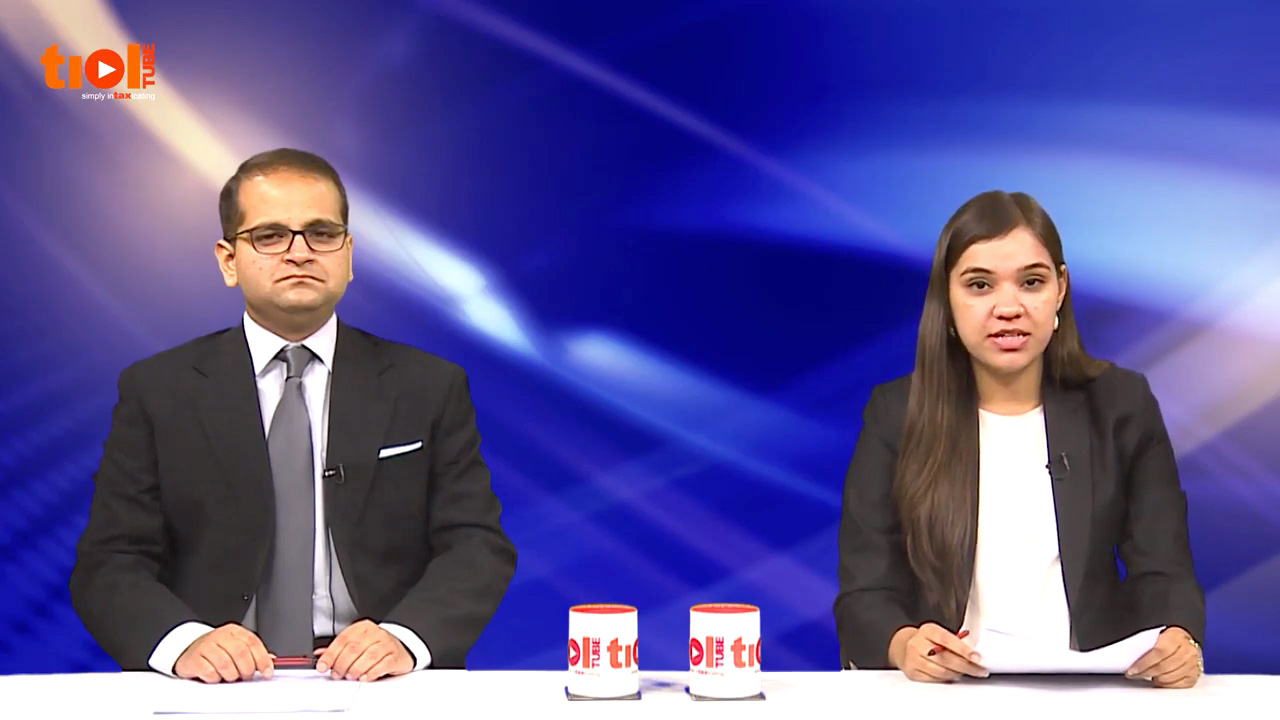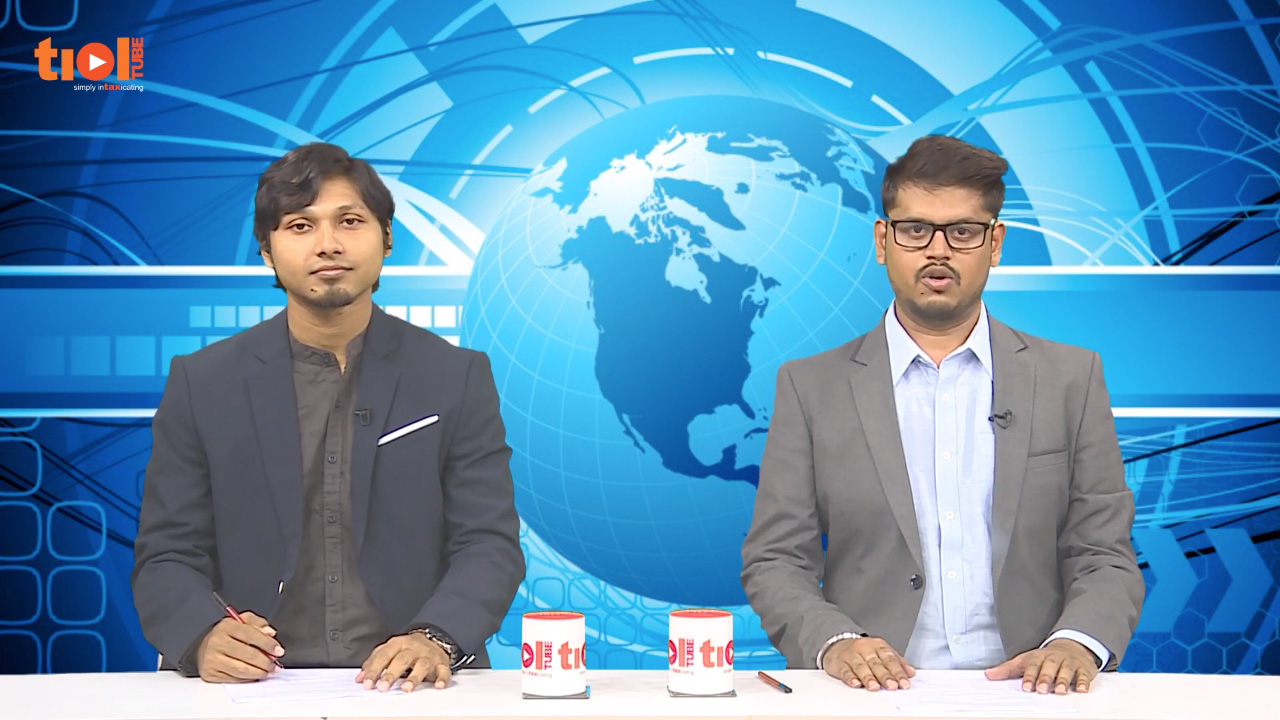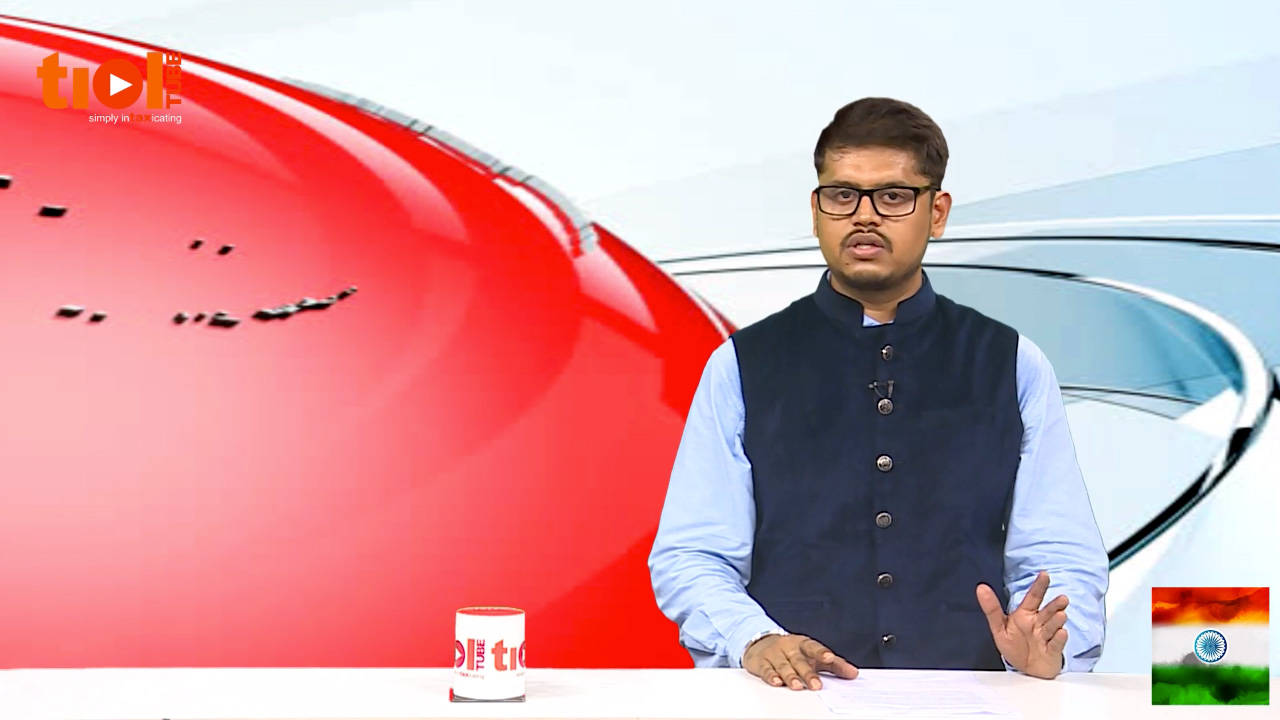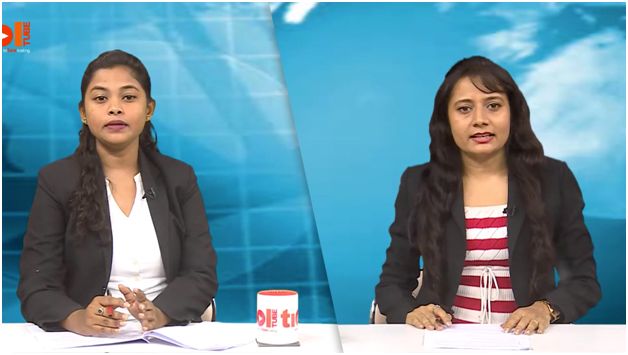|
SERVICE TAX
2019-TIOL-2451-CESTAT-KOL
Z Konark Vs CCE & ST
ST - The appellants have been engaged in the activity of construction of residential complex - The refund claims stand rejected on the ground of time bar in terms of Section 11B - The section provides that refund claims are to be filed within one year from the date of payment of tax - Such strict time limits will not be applicable in case the payment of tax is made under protest - The refund claims under dispute have been filed beyond the period of one year and have been held to be time barred - But the appellants submit that they were forcefully asked to pay the service tax which were not liable to be paid - In order to decide whether the appellant's claim for refund will be hit by time bar under Section 11B, it is required to be verified from records whether any letter of protest has been filed by the appellants with the jurisdictional authorities and obtained acknowledgement - During argument, the appellants have brought to notice only the letter dated 28.03.2006 filed by one of the appellants M/s Z Konark - It has been claimed that similar letter of protest has been filed by other appellants also - The impugned order is set aside and the matter remanded to the original authority: CESTAT
- Matter remanded: KOLKATA CESTAT
2019-TIOL-2450-CESTAT-AHM
Saurashtra Kutch Stock Exchange Ltd Vs CCE & ST
ST - This appeal has been filed by assessee against demand of Service Tax on certain amounts received by them - While the reimbursements given by service recipient to service provider which are in the nature of expenses made by service provider in the capacity of pure agent which are not includable in assessable value in terms of decision of Supreme Court in the case of Intercontinental Consultants and Technocrats Pvt. Ltd. 2018-TIOL-76-SC-ST - However, what constitute reimbursements has been decided by larger bench of Tribunal in case of Bhagwathy Traders 2011-TIOL-1155-CESTAT-BANG-LB - In the said decision, the scope of the term reimbursements has been examined - The impugned order essentially denies the benefit of exclusion of these amounts on the ground that the said amounts are not paid by services recipient to service provider in his capacity as pure agent - A perusal of MOU shows that the part of emoluments of managing director and emoluments of a set of the employees is paid by subsidiary to the assessee - The managing director as well as the employees are all employed by service provider and are not employees of service recipient - Thus, in no way does the liability to pay salaries of these people is of the subsidiary - The liability to pay salaries and emoluments to these persons is of the assessee - Thus, the assessee cannot claim that the amounts received from the subsidiary are in the nature of reimbursements - It is also seen that the amounts paid for usage of building includes rent, rates and taxes, labour charges for upkeep of building, repair and maintenance, generator expenses and insurance premium are reimbursed to the extent of 70% of the total expenses - The estimate of 70% is arrived at on the basis of usage of actual utilization of area by subsidiary - The building belongs to assessee and, therefore, the payment of rent, rates and taxes, labour charges, repair and maintenance, generator expenses and insurance premium are all liabilities of assessee and not of the subsidiary - Thus, these payments are not in the nature of reimbursements - So far as amounts received of electricity and telephone is concerned, the same is the liability of respective persons as the same is independently consumed - To that extend, no tax can be demanded on the amounts of money paid by the subsidiary on count of electricity and telephone consumed on estimate basis - Similarly, for the activities done by President, Executive Director and other Directors and employees on account of the subsidiary and payments made by the subsidiary to assessee as a reimbursement of the travelling and other expenses would be in the nature of agencies function and excludable from the value of services - The matter is remanded to Original Authority for requantification: CESTAT
- Matter remanded: AHMEDABAD CESTAT
2019-TIOL-2449-CESTAT-BANG
Image Vs CCT & CE
ST - The assessee is engaged in export of granulated blast furnace slag - They have filed a rebate claim of service tax paid on specified services used for export of granulated blast furnace slag from Gangavaram Port, Andhra Pradesh in terms of Notfn 41/2012-ST - Thereafter, a SCN was issued proposing to reject the claim on various grounds - The present appeal is not maintainable before Tribunal and therefore dismiss the appeal being not maintainable - However, liberty granted to the assessee to approach the Revisionary Authority which is competent under the Act to entertain and decide the rebate claims - Accordingly, the appeal is dismissed as not maintainable: CESTAT
- Appeal dismissed: BANGALORE CESTAT
CENTRAL EXCISE
2019-TIOL-1952-HC-AHM-CX
Thermax Ltd Vs UoI
CX - The petitioner is engaged in manufacture of Boilers, Heaters, Heat Pumps and Pollution control equipment for industrial use and all these equipments are capital goods - They filed a rebate claim under Rule 18 of CER, 2002 - Thereafter, after a period of three months, SCN was issued proposing to deny rebate claimed by petitioner - The duty, which was paid by petitioner, which was otherwise not payable on exported goods and therefore, rebate of such duty was not admissible in terms of Rule 18 of Central Excise Rules - However, the duty, which was paid by petitioner is held to be treated as voluntary deposit - As per Section 142(3) of GST Act, every claim for refund filed by any person before, on or after the appointed day i.e. 01.07.2017 for refund of any amount of CENVAT credit, duty, tax, interest or any other amount paid under the existing law, should be disposed of in accordance with the provisions of existing law and any amount eventually accruing to such person should be paid in cash - In view of this clear provision, the respondent No.2 ought to have directed the sanctioning Authority to refund the amount of the duty refundable to the petitioner in cash instead of credit in CENVAT Account - The impugned order passed by respondent No.2 is partly modified to the extent that instead of crediting the duty in the CENVAT account of the petitioner, the sanctioning Authority is directed to refund the amount in cash to the petitioner: HC
- Petition allowed: GUJARAT HIGH COURT
2019-TIOL-2448-CESTAT-MAD
CCE Vs Schneider Electric India Pvt Ltd
CX - Revenue is in appeal against the interest involved in dispute which is less than Rs. 20,00,000/-, below the prescribed limit as per the litigation policy and as conveyed vide Board's Circular F. No. 390/Misc./116/2017-JC - Therefore the appeal is liable to be dismissed on monetary grounds - Appeal is dismissed on monetary grounds without going into the merits of the case: CESTAT
- Appeal dismissed: CHENNAI CESTAT
2019-TIOL-2447-CESTAT-ALL
CCE & ST Vs Balaji Wire Pvt Ltd
CX - The Revenue is in appeal against impugned order wherein the Commissioner (A) allowed the interest to the assessee from the date of deposit till the refund claim is sanctioned - The issue has been examined by Madras High Court in case of Ucal Fuel Systems Ltd. - The amount paid by assessee was under protest during the course of investigation itself - Therefore, the said amount is not paid towards duty and was a deposit by the assessee under protest - Moreover, this Tribunal vide its final order dated 13.11.2016 has held that the assessee was not liable to pay any duty therefore the amount of refund was no duty and was only a deposit - Therefore, as held by High Court of Madras in case of Ucal Fuel Systems Ltd., it is held that the provisions of section 11BB of Central Excise Act is not applicable as the amount in question was not paid towards duty, but only by way of deposit during investigation - As the High Court has granted interest on such deposit from the date of deposit till the date of refund, therefore, following the precedent decision of High Court of Madras, it is held that the Commissioner(A) has rightly sanctioned the refund of interest to the assessee from the date of deposit till the date of refund - No infirmity found in the impugned order, same is upheld: CESTAT
- Appeal dismissed: ALLAHABAD CESTAT
2019-TIOL-2446-CESTAT-CHD
Iceberg Foods Ltd Vs CC & C
CX - The main appellant is engaged in manufacture of packaged drinking water and aerated water in their own name and also under the brand name of "Kingfisher" - It came to the notice of department that the main appellant was also having two others units, one at Jaipur (Rajasthan) and another at Vasai (Maharashtra) in the same name as those of main appellants, they were also manufacturing their own product under brand name "Kwality Kwencher" - The other branded product under "Kingfisher" brand was for other company i.e. M/s UB Beer Ltd. - At Vasai plant, they were manufacturing packed performs and bottle closers/caps whereas in respect of Vasai unit, the appellant surrendered their Registration Certificate on 31.03.2005 - The department entertained a view that the main appellant had failed to intimate the department about the existence of other two units while filing the declaration as prescribed under Rule 2(i) of SSI Exemption Notification - It is evident from the SCN against which this order has been confirmed against the appellants by Lower Adjudicating Authority and Commissioner (A) - The present appeal before this Tribunal is pertaining to the same period and the fact that the Adjudication by the Tribunal has already been done for the earlier period 2003-04 and 2004-05 and the amount is also same i.e. Rs. 22,67,593/- this amount included the demand for period April to July 2005 as well - The department had not produced any order contrary to the order of Tribunal - The same is applicable in the case in hand being recent judgment: CESTAT
- Appeals allowed: CHANDIGARH CESTAT
CUSTOMS
2019-TIOL-1953-HC-MAD-CUS
Shriwin Shipping And Logistics Vs CC
Cus - The sole and pivotal ground on which the impugned order is assailed is violation of sub-regulation (5) of Regulation 17 of CBLR 2018 - There is no disputation that sub regulation (5) of Regulation 20 of CBLR 2013 is ad verbatim same to sub regulation (5) of Regulation 17 of CBLR 2018 or in other words, the two sub regulations are ad verbatim the same - This court as a matter of judicial discipline is proceeding on the basis that various time frames adumbrated in Regulation 17 of CBLR, 2018 are mandatory and not directory, what has to be examined is whether there is violation of 90 days time frame set out in sub regulation (5) of Regulation 17 of CBLR, 2018 - The SCN is dated 14.09.2018 and the petitioner submitted that same was served on them on 15.09.2018 - However, the reply of petitioner, i.e., written statement of defence was admittedly sent only on 22.11.2018, which is not within 30 days time limit for such reply stipulated in Regulation 20(1) of CBLR, 2013 and 17(1) of CBLR, 2018 - While the principle that time frames are mandatory and not directory is operating, as it comes out clearly from the circular that time frames at various stages are intended to prescribe an over all time frame, a noticee who has not adhered to the time frame applicable to it, cannot take advantage of the alleged violation of time frame on the part of department, more so when there is no delay if 90 days is computed from the date of reply to SCN - This Court has already held that 90 days from the date of issuance of SCN is when the noticee submits reply within 30 days and in a case like this, when the noticee has not sent the statement of defence / reply to SCN beyond 30 days time frame, 90 days time frame in the regulation if at all can be computed only from the date of reply and if so computed, it is within 90 days period prescribed under Regulation 20(5) of CBLR, 2013 and Regulation 17(5) of CBLR, 2018 - Therefore, it cannot be said by writ petitioner that there is violation of Regulation 17(5) of CBLR, 2018 and have the impugned order set aside on that alone ground - There is no disputation before this court that alternate remedy against the impugned order is available to the writ petitioner by way of an appeal to the Tribunal under Section 129A(1) of the Customs Act, 1962 - Having decided / returned a finding that impugned order is not hit by Regulation 17(5) of CBLR 2018, this court deems it appropriate to relegate the writ petitioner to alternate remedy of appeal before CESTAT as the impugned order may have to be tested on merits which turns heavily on facts and records - It is nobody's case that impugned order has been passed by respondent without jurisdiction or that there has been violation of NJP - It is not writ petitioner's case that alternate remedy by way of an appeal to CESTAT under Section 129A(1) of the Customs Act is ineffective or illusory - One more vital aspect of matter which this court has borne in mind is the observation made by Supreme Court in Satyawati Tondon case - The Supreme Court has held that while there will be no doubt that rule of alternate remedy is not an absolute rule, i.e., it is a rule of discretion and not a rule of compulsion, when it comes to cases pertaining to tax and cess, it has to be applied with utmost rigour - It is the case of department that writ petitioner has permitted third party to use icegate login-id of CBL of writ petitioner, thereby permitting the import of high value BIS, IPR violated goods: HC
- Writ petition disposed of: MADRAS HIGH COURT
2019-TIOL-2445-CESTAT-KOL
CC Vs Surya Textiles
Cus - Revenue has filed Miscellaneous Applications for withdrawal of their appeals - Accordingly, the appeals are dismissed as withdrawn: CESTAT
- Appeals dismissed: KOLKATA CESTAT
2019-TIOL-2444-CESTAT-CHD
Rajnish Kansal Vs CC
Cus - The assessee declared nut and bolts to be exported while filing the shipping bill - On examination of container, the goods were found Muriate of Potash (MOP) which is restricted/prohibited item - It is a case of clear cut misdeclaration of goods and in the guise of nut and bolts, assessee sought to export MOP for which licence is required and it was also found that during the investigation, all the documents were fake - The goods were rightly held liable for confiscation - As regards to penalty imposed on assessee, Shri Rajnish Kansal is the main person who fabricated the documents and misdeclared the goods, therefore, the penalty of Shri Rajnish Kansal is rightly imposed and no leniency is required - With regard to Shri Rinku Kansal who is the employee of Shri Rajnish Kansal and is not going to get any benefit from the act of Shri Rajnish Kansal, the leniency is required for imposition of penalty under Section 114 of Customs Act, 1962 - Therefore, the penalty of Rs. 1,50,000/- is reduced to Rs. 50,000/-: CESTAT
- Appeals disposed of: CHANDIGARH CESTAT |
|








